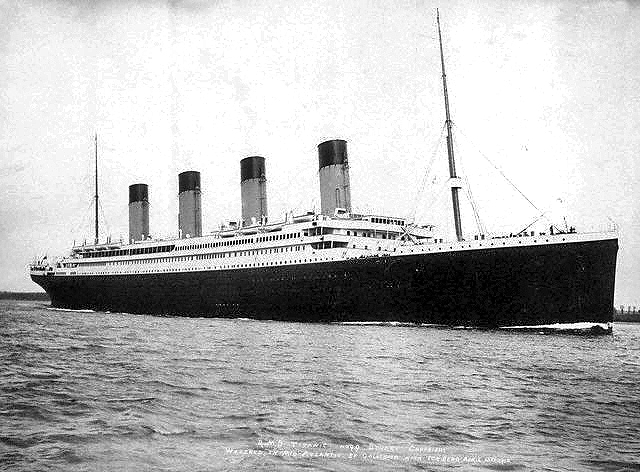>> It was truly strange to start last week speaking to the author Richard Davenport-Hines about his book published to coincide with the centenary of Titanic’s demise, and end it talking about a ship sinking off the coast of Italy on Gordon Burns’ excellent BBC Radio Manchester show.
I was doing the paper review with Manchester Evening News’ Diary Editor Dianne Bourne, and we were struck by how nearly every front page made some sort of comparison with Titanic. In fact, most of the eye-witness accounts from survivors did too. While I very much doubt whether we’ll be marking 100 years of the Costa Concordia accident with books, memorial cruises and a Julian Fellowes mini-series, there are some similarities. The captain said the rock ‘shouldn’t have been there’, just as the iceberg shouldn’t have been there. Abandoning ship was much more problematic than it should have been. And perhaps most strikingly, there have been murmurs of discontent from the industry that these huge liners are unstable and sacrifice too much in the desire to squeeze in cabin space and shopping malls – just as the shipping lines of the early 20th century were dangerously obsessed with speed. As Davenport-Hines says, it was that obsession which in the end did for Titanic.
Anyway, Davenport-Hines’ book Titanic Lives is fascinating, thought-provoking stuff – not least because it’s more of a social history of the people who made and travelled on Titanic rather than another investigation into why it sank. And Julian Fellowes likes it, which, currently, is quite the seal of approval.
Click here to read the full interview with Richard Davenport-Hines in The National


